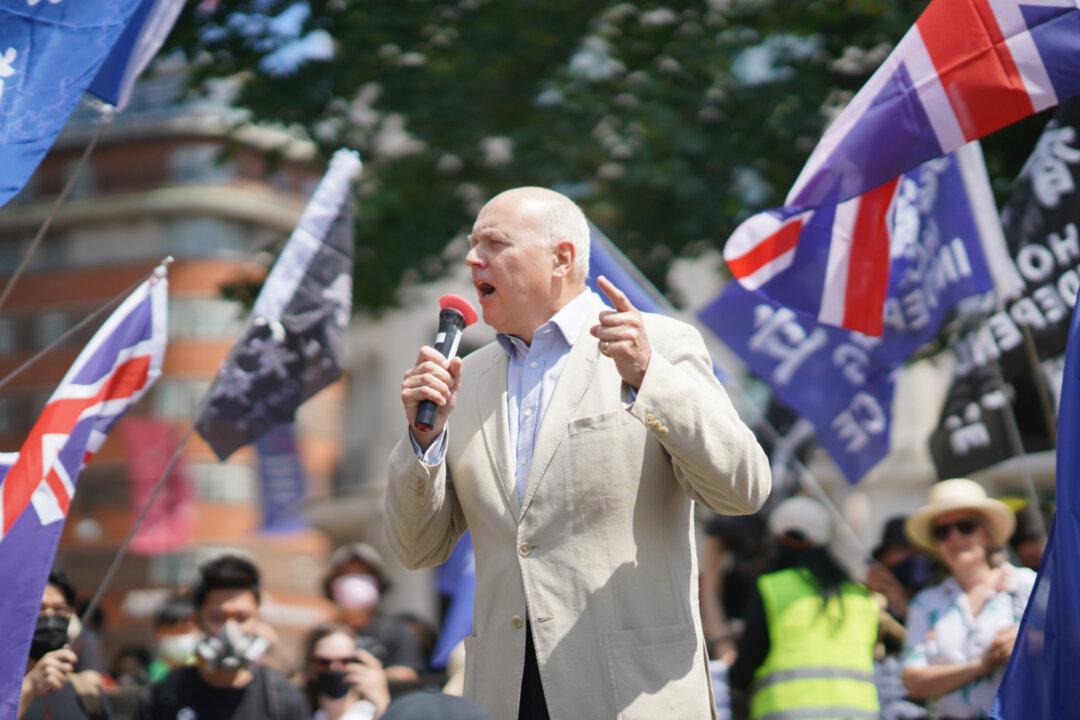The British government has come under renewed criticism from lawmakers as a government minister is visiting Hong Kong this week for the first time since 2018.
A number of parliamentarians who have been sanctioned by the Chinese Communist Party (CCP) condemned the government for sending the minister for trade talks, with former Conservative Party leader Sir Iain Duncan Smith saying the government was set to “prostrate” itself before the Chinese regime.





